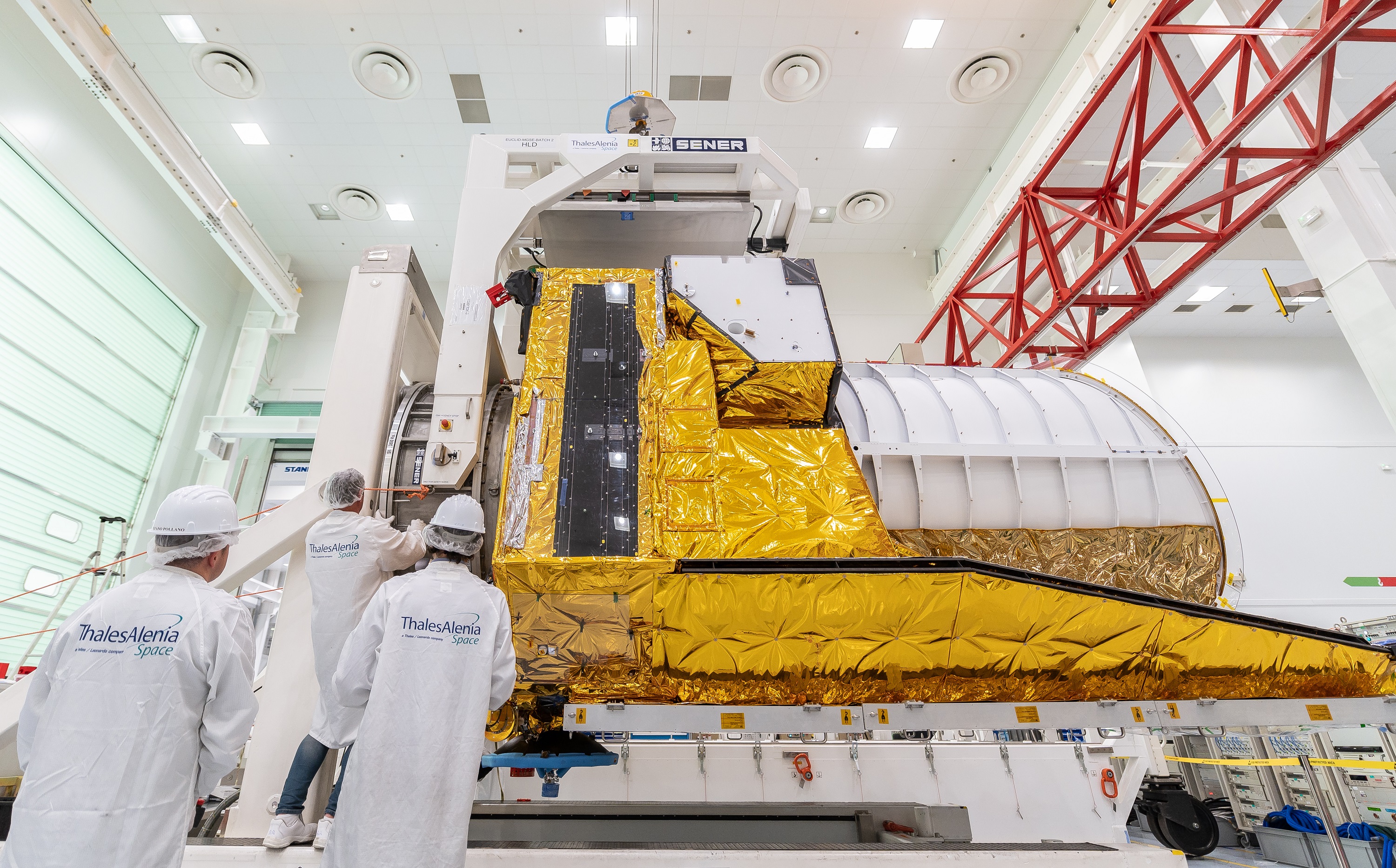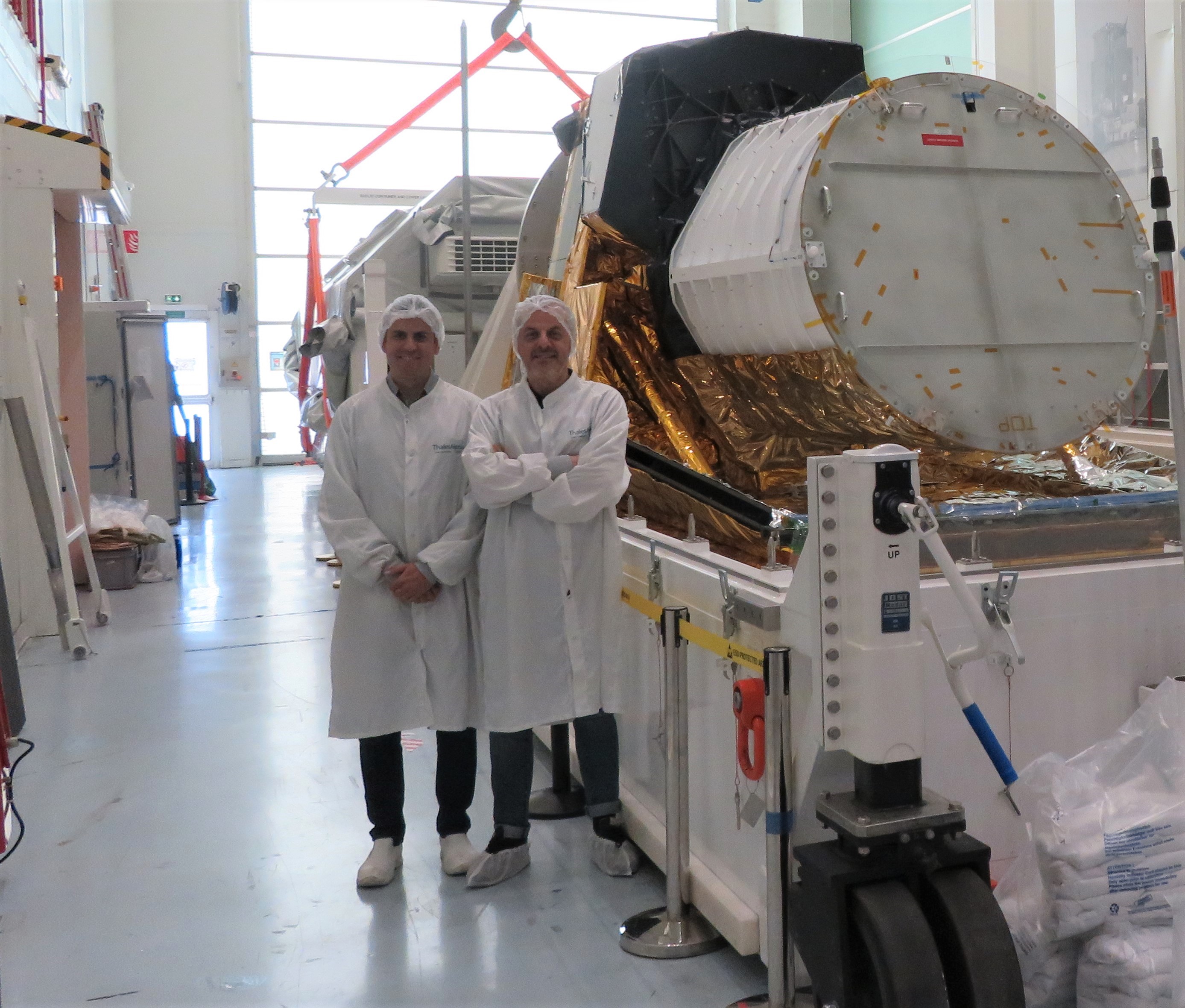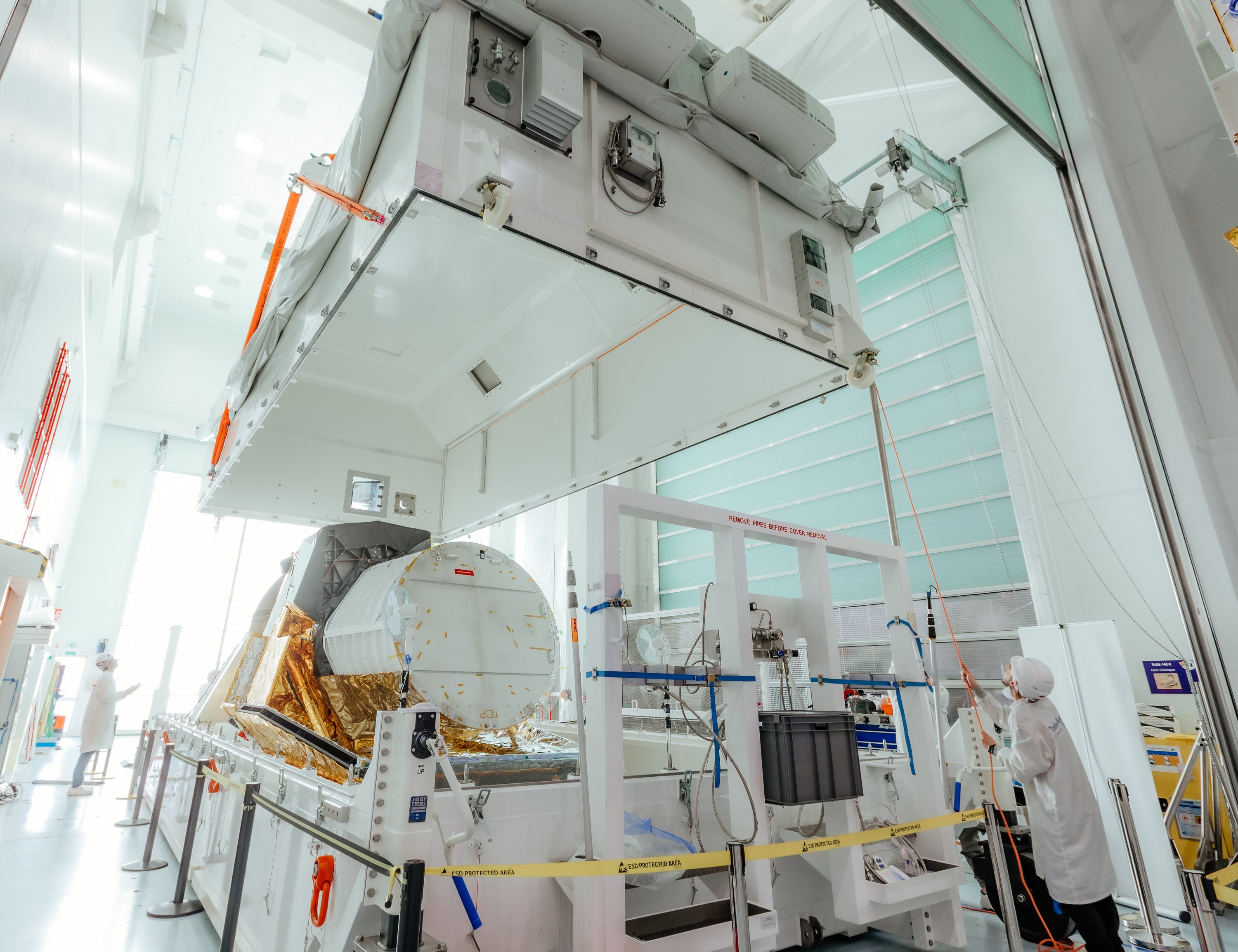A groundbreaking science satellite is prepared for shipping.
The European Space Agency (ESA)’s Euclid mission is designed to delve into the mysteries of the dark Universe.
This extraordinary satellite will create a revolutionary three-dimensional map of the Universe, using time as the third dimension. By examining billions of galaxies up to 10 billion light-years away, and covering more than a third of the sky, Euclid is set to unlock a wealth of knowledge that will shape our understanding of the cosmos.

© Thales Alenia Space \ ImagIn
After an extensive environmental and mechanical testing program at Thales Alenia Space’s Cannes plant, the satellite was meticulously prepared for its first journey, reaching the port of Savona, Italy just a few hours ago. From there, it will set sail for the port near the launch site in Cape Canaveral, Florida.

© Thales Alenia Space
We asked Ezio Ciancetta, Deputy Project Manager for the Euclid and Laurent Sanna, Assembly Integration and Test Systems Manager for Euclid in Cannes, to share their insights about the preparatory phases.
Ezio, Laurent, you’ve been working for a long time on Euclid. After dealing with various difficulties and a very tight schedule, what recent challenges have you faced?
Ezio: Our main recent challenge has been to keep the test program on schedule.
Laurent: indeed, one key factor is rigorous testing and troubleshooting to identify any potential issues before deployment.
Ezio, please tell us more about the actual testing?
Ezio: In recent months, we focused on the thermal vacuum, mechanical and electromagnetic compatibility tests. Our main challenge was to perform these tests while staying on the tight schedule and accommodating changes in the baseline launcher. Because Euclid’s performance requirements are so demanding, every aspect of this project is a real challenge.

© Thales Alenia Space \ Alban Pichon
Laurent, you’ve been quite busy in the last few days, I imagine…
Laurent: Yes, very busy! The satellite was packaged in a container that must be kept at a stable temperature and flushed with nitrogen to maintain clean room conditions. It’s also hermetically sealed to avoid any contact with the outside. Before the satellite leaves, we carry out a maintenance check and a general leak test. We’re also carrying more nitrogen than needed, as well as other supplies, to mitigate any possible issues during the trip.
Ezio: Exactly. The transport container must keep the spacecraft in a safe environment during shipping to Port Canaveral. The temperature, pressure, and humidity are monitored continuously, and a nitrogen purging system maintains a clean room environment. Three colleagues are traveling with the spacecraft to monitor the situation and intervene when necessary.
Ezio, Laurent, what does this mission mean to you?
Ezio: Euclid was an important part of my personal and professional life. I was lucky enough to work with a great team, with people from all horizons, and I learned something from all of them. We teamed up with companies, agencies and universities to build the spacecraft and we realize that the scientific community has huge expectations, which means it’s a tremendous responsibility for us. I really hope that this project will bring us closer to understanding our Universe and dark energy.
Laurent: “It was an honor to have a satellite like Euclid at Cannes for almost nine months. I hope that Euclid will bring us answers about our Universe and dark energy and teach us more about the accelerating expansion of the Universe. Good luck to everybody in Cape Canaveral for a successful launch!

© Thales Alenia Space
Production responsibilities
Thales Alenia Space is prime contractor for the Euclid satellite, leading more than 80 European companies, as well as taking responsibility for its service module.
Airbus Defense & Space is in charge of the payload module, comprising the telescope and optical bench housing the VIS (Visible Instrument) and NISP (Near Infrared Spectrometer and Photometer) instrument sensors.
These two instruments were developed by an international consortium led by the Paris Astrophysics Institute (IAP) in Paris, including nearly a dozen French research laboratories (part of the national scientific research center CNRS and CEA, the French atomic energy and alternative energies commission), with support from French space agency CNES.
Leonardo provides several major components for Euclid, including the cold gas microthrusters used to stabilize the satellite’s attitude in orbit and keep it pointing in the right direction for optimal observations. Leonardo also developed the Fine Guidance Sensor (FGS), a purpose-designed, highly accurate star sensor mounted directly on the telescope to ensure absolute alignment between the telescope’s line of sight axis and reference stars, along with the photovoltaic assembly which will provide electrical power for all systems.
Thales Alenia Space in Italy supplied Euclid’s K-band deployable and steerable high-gain antenna, building on its expertise in this area through similar developments for Solar System exploration missions, including Cassini-Huygens (Saturn), BepiColombo (Mercury) and ExoMars.
Our Italian teams also provided the X-band transponder, while the X-band and K-band traveling wave tube amplifiers (TWTA) were developed by Thales Alenia Space in Belgium.
Thales Alenia Space in Spain supplied the satellite communications system, drawing on its long-standing experience in developing data transmission systems for all types of space missions.


